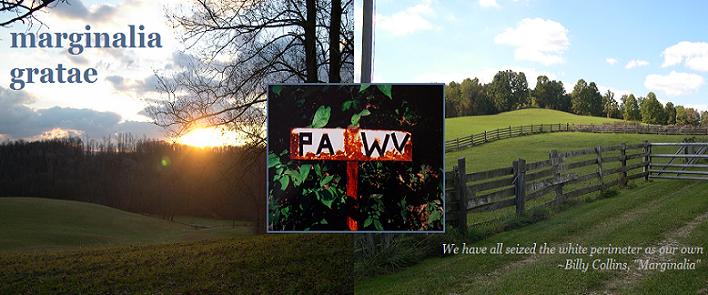Some a' y’all don’t seem to have the sense God gave a goose!
This brief but scattered catalogue of thoughts will, hopefully, illustrate what I mean:
I suppose it began with the–ahem–departure of West Virginia’s (former) favorite son, Coach Rodriguez. Real class act, this guy, ditching his boys following an embarrassing, devastating, and season-changing loss to Pitt . . . but before finishing out the season in the Fiesta Bowl (ah, that victory was the sweetest of all victories, and coupled with the raw emotion and Mountaineer Spirit demonstrated by Bill Stewart, Pat White, and the rest of the ‘Eers in the face of what had just gone down, that particular moment-in-sports was damn near poetic—but I digress . . .).
Real bum move, if you ask me, Rodriguez leaving the team before the season ended, but given the questionable leadership at WVU, I can’t help but wonder about the other side of the story.
Which brings me to my next rub:
What the heck is going on at WVU anyway?
First there’s the Executive MBA scandal involving the Governor’s daughter . Really, why not just award her an ‘honorary degree?’ Then they could avoid the scandal that comes with the falsification of transcripts and jump right to the gratuitous conferring of degrees; it seems the two actions are a mere hairbreadth apart these days, though—theoretically—they differ in principle.
Brief aside: my friend and colleague William Bradley has addressed the issue of honorary degrees more thoroughly on his blog in recent weeks, so if you’re interested I’d encourage you to visit The Ethical Exhibitionist/Academia.
Okay. Then there’s the push for proprietary rights over the work of creative writers at WVU by requiring students in the creative writing programs to make their masters’ theses available online. I realize that ownership/authorship of written work is complicated, and intellectual property is further complicated by the writer/researcher/institution dynamic; as I understand it, the university owns all intellectual property created by any member of the university community using university resources (understanding, too, that members of the university community themselves are resources, from an organizational standpoint), and therefore the university has the right to retain, reproduce, and distribute the work. I also understand that while individuals are permitted to copyright the same work, the university retains the additional intellectual property rights.
Another aside: U of Illinois at Urbana-Champaign put together a handy little at-a-glance guide to this intellectual property chaos.
Complicated though they may be, there are plenty of good reasons for these protections, and most assume a certain reciprocity between author and institution; at the most basic level, an author’s copyright can protect his or her unique arrangement of words/symbols and the institution can protect his or her ideas. This works fine in the sciences where methods, procedures, practices–in essence, ideas—must be replicated for disciplinary integrity. But creative writing presents a different problem: it is here that the unique arrangement of words/symbols—the craft, process, and ‘finished’ work itself—does different work than the lab report or even the scholarly treatise, and the value—or at least part of the value—of a creative work is not that it can be replicated, but that it cannot. Further, these traditions belong to two different publishing cultures and two discrete philosophical paradigms. The concessions made by WVU administrators to allow students a five-year window to publish their creative work before posting it to the Web is not sufficient. It can be that a work is complete for the purpose of fulfilling degree requirements but is still in process in terms of its art, and it may take some time—even more than five years!—for the artist to refine and revise the work until the writer’s vision is actualized.
Regardless, what WVU has proposed for its creative writers is bad policy—and as a proponent of said bad policy Director of Creative Writing Mark Winegardner’s absurd argument, as quoted in the Chronicle of Higher Education, that “it looks like the weird creative types are asking to be let out of gym class,” falls woefully short.
And finally, Clinton by a landslide? Pshaw. You know, only around 23% of eligible voters turned out for the Democratic primary (and, sadly, only roughly 12% turned out for the Republican primary back in February), and when only (roughly) a third of the voting population turns out, theirs are the voices that are heard—-but they may not be representative of the whole of the state, despite "random sample" arguments to the contrtary. Still, seeing Clinton win in West Virginia by such a margin is unsettling---and for a whole variety of reasons, but that's more than I really want to get into at the moment.
Besides, I really do believe that all of these instances that I’m bellyachin’ about—from the academic to the athletic to the political to the social—are the exception and not the rule in the great Wild, Wonderful. Of course, it is discouraging that only about a third of voters made it to the polls during this primary season, a trend hardly unique to West Virginia . . . but that’s another can of worms.


No comments:
Post a Comment